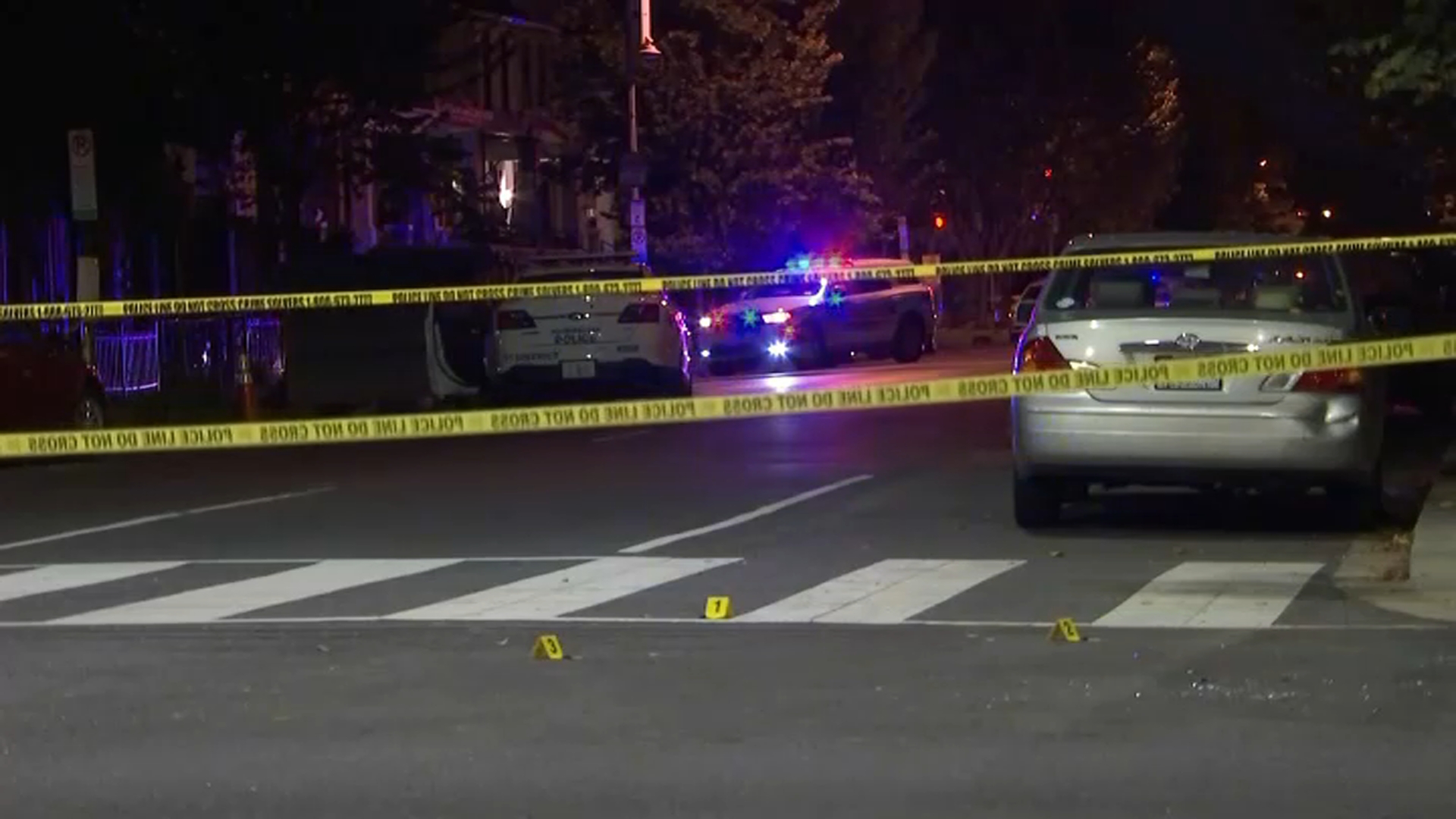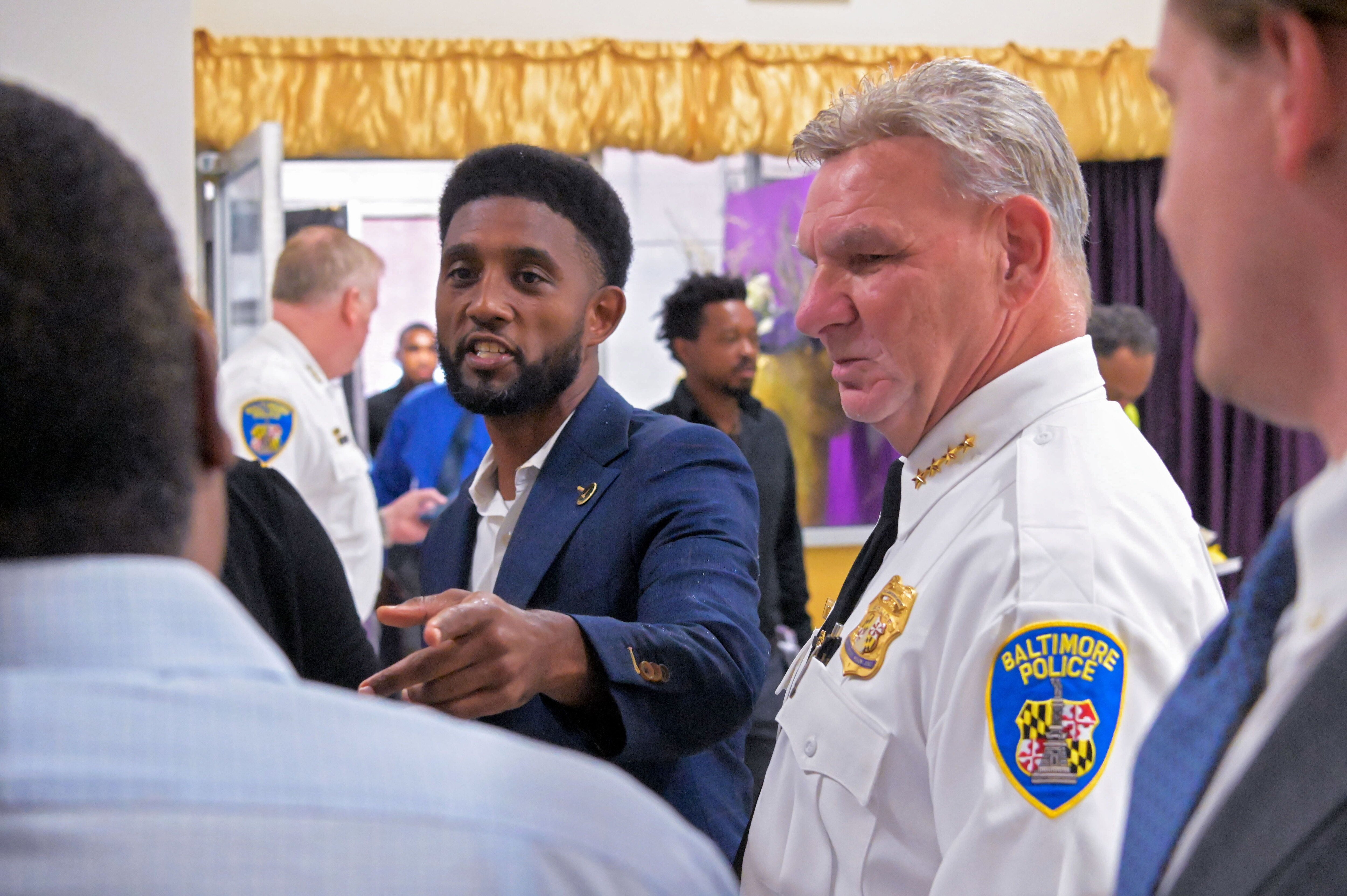As the work to save lives and reign in gun violence continues across the nation two Mid-Atlantic cities are of particular interest for those who do this work: Baltimore and the District of Columbia. Both cities had historic years in 2023 but in very different ways.
Last year, Baltimore saw historic declines in homicides while the District saw a historic spike.
The News4 I-Team has been investigating the reasons for the gun violence and looking for solutions over the past two years. While investigating why D.C.’s neighboring city up Interstate 95 was having measurable success in its fight against homicide, the I-Team found that both cities consult with some of the same experts to reduce crime, and although D.C. spends significantly more each year than Baltimore, the trends have been different.
Kelief Hendricks said he’s an example of the changes in Baltimore.
“I was caught up in the street life,” the 22-year-old said.
In 2022 he was one of hundreds shot, but he survived.
“I would say wrong place at the wrong time,” Hendricks said.
Hendricks’ family felt the pain of gun violence before. He said he lost his dad to gun violence one month before he was born. Without a dad, the men he saw on the corner filled that void and guided him in the wrong direction.
“It was all I seen growing up was people selling drugs,” he said. “So, I just went, okay, they got nice things, I want nice things, and I want to be able to provide for my family.”
Hendricks said he knows he's lucky to be alive. The year he was shot, 330 others died in Baltimore. And in the two years that have passed, something has happened in his city: progress.
Jeremy Biddle lives in D.C. but recently served as special advisor for the Group Violence Reduction Strategy to Baltimore's mayor and police Commissioner. Now he serves as senior advisor for the University of Pennsylvania’s Crime and Justice Policy Lab.
He told the I-Team that before taking the job in Baltimore, he had a list of must haves for the collaboration to be successful.
“Leadership from the mayor first,” he said. “If you don't have city and political leadership that's deeply invested in doing this and doing it the right way, meaning not having a plan that you abandoned after a month with the first road bump, but really making a plan and sticking with it, you can't get anywhere.”
In 2021, Baltimore Mayor Brandon Scott initiated a comprehensive violence prevention plan consisting of three pillars: treating violence like a public health issue, promising community engagement and government collaboration and evaluating and providing accountability for what's working and what's not.
“It's not just flooding areas, doing car stops, field interviews,” Biddle said. “It's knowing the people involved and focusing.”
And he said that plan included very specific goals.
“You understand who's most directly impacted by violence, and you craft and tailor a strategy directly around that population," he said.
That includes people like Hendricks, who’s been involved with a program called Roca for a year and a half.
“This program, it changed me,” he said.
Roca Managing Director JT Timpson admits his staff is relentless in trying to break through to those most at risk of being caught up in violence, knocking on doors and not taking no for an answer.
“We built a program for young people who we knew wouldn't show up,” he said. “We built a program for young people we knew we have to go drag out of bed because they are the ones who need it the most.”
Timpson told the I-Team Roca takes a holistic approach — not only providing things like job training — but helping young people understand their emotions and behaviors through therapy and healing.
"Trauma is living in Baltimore for a lot of our young people,” he said. “We define trauma as we train. We define trauma as the fear that won’t turn off, so imagine that, imagine what our young people go through every day living here.”
While there is still substantial violence in Baltimore, for the first time since 2015 the city had fewer than 300 homicides last year – 263 according to the police department. That’s a 22% decrease in the past two years.
Biddle said there is a difference between Baltimore and D.C.
“I will say this, D.C. has a lot going for it,” he said. “It has a good community violence intervention, infrastructure, strong street outreach, strong resources behind kind of transformative mentorship and life coaching. What it does not have is a strategy. Baltimore city has a strategy. That is the difference.”
“Mayor (Muriel) Bowser has set clear priorities for reducing crime, gun violence and juvenile crime to create a safer, stronger Washington, D.C.,” D.C. Deputy Mayor for Public Safety and Justice Lindsey Appiah told the I-Team. “This means ensuring all residents are safe, victims of violent crime experience justice and those that harm our community are held accountable."
The office went on to say there have been encouraging results, with violent crime and homicides down compared to this time last year.
David Muhammad with the National Institute for Criminal Justice Reform has helped both cities develop strategies for reducing gun violence.
“While not perfect at all, [Baltimore’s leaders] are putting the pieces in place to reduce gun violence, and so, this specificity and intensity is working in Baltimore,” he said. “Baltimore is not resource rich, is not a place that I would call resource rich, but they have focused their resources.”
Bowser previously said D.C. spends more than $100 million a year on programs to reduce gun violence. In Baltimore they're spending about a quarter of that $22 million to $25 million a year according to the mayor’s office.
Timpson said working together is important and that Roca is sharing resources with D.C. by doing training with some of the District's violence interrupters.
“Here's the thing: If they don't enter into this work in a healthy space, then they're going to crash out, and that's what happens to a lot of people who do this,” he said. “We crash and burn so fast because we're dealing with trauma constantly."
And while Roca believes in educating and healing, counselor Tyrone Kent said there is also talk about consequences.
“I would say that police in prosecuting and in some situations, prison is necessary,” he said. “Without accountability, there is no self-evaluation … You know, if you don't self-evaluate, you don't change.”
Hendricks said he's accepting the change he’s learned, and for the first time, he's seeing a new purpose for his own life. He hopes to one day work with youth.
“If I can change, I know the next generation under me can change,” he said.
Reported by Tracee Wilkins, produced by Rick Yarborough, shot by Jeff Piper, and edited by Jeff Piper and Steve Jones.
News4 sends breaking news stories by email. Go here to sign up to get breaking news alerts in your inbox.



